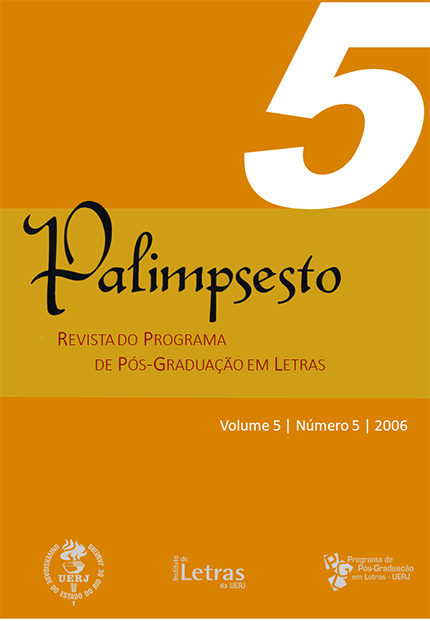Haiti and Post-Colonial Allegory in Manuel Zapata Olivella’s Changó, el gran putas
Resumo
One hundred and eighty years subsequent to the liberation of Saint-Domingue from French-colonial rule in 1803, Afro-Colombian writer, folklorist and dean of Afro-Hispanism Manuel Olivella published his mammoth Changó, el gran putas. To-date, this particular work has been the subject of countless published articles and monographs, scholarly presentations and consideration for literary prizes.In continuing the discussion on this text, my paper purposes to offer a critical analysis of Manuel Zapata Olivella’s Changó, from the position of re-imagining Haiti and re-positioning the Haitian Revolution through the gaze of post-colonial allegory. In so doing, I will offer post-modern and post-colonial implications as a transition to discussing allegorical elements in the novel. Second, I will highlight textual examples that illustrate how the author narratively treats the historical moments of the Haitian Independence and the Revolution. The examples mentioned then seek to substantiate my position of post-colonial allegory as the vehicle by which Manuel Zapata Olivella explores the history of Haiti and the Revolution within the text. Finally, I will offer concluding comments regarding the discursive qualities of the work evidenced by the author’s mastery of the craft of fiction writing.
Downloads
Publicado
Como Citar
Edição
Seção
Licença
A revista Palimpsesto publica artigos e resenhas inéditos, referentes as áreas de Letras e Linguística. Publica volumes mistos e/ou temáticos, com artigos e resenhas em português, inglês, espanhol e francês.
Autores mantêm os direitos autorais e concedem à revista o direito de primeira publicação, com o trabalho simultaneamente licenciado sob a Licença Creative Commons Attribution, que permite o compartilhamento do trabalho com reconhecimento da autoria e publicação inicial nesta revista.

Palimpsesto utiliza uma Licença Creative Commons - Atribuição-NãoComercial 4.0 Internacional.







